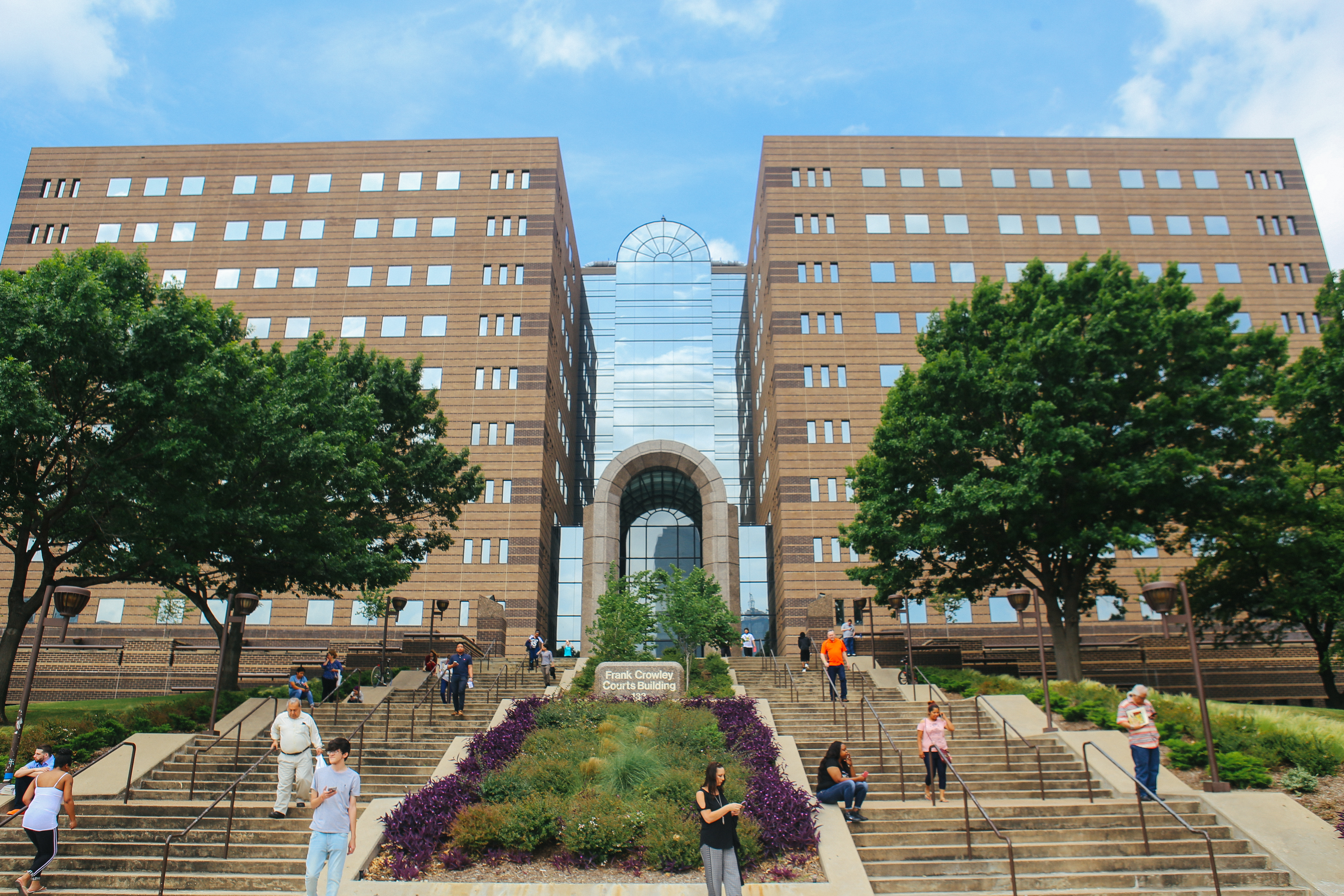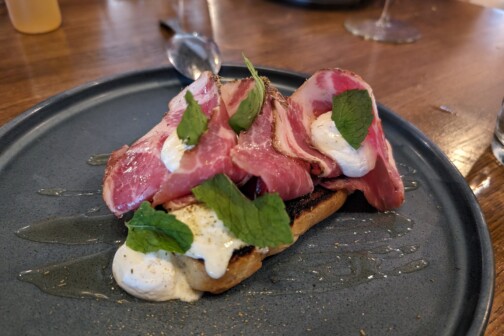With trials paused due to the pandemic, who is in jail and who is not has more to do with who can afford bail than who is guilty of a crime. It is another existing trend exacerbated by the lengths governments are going to slow the spread of the coronavirus. Even before the pandemic, about 70 percent of the roughly 5,000 people held in the Lew Sterrett Justice Center were only there because they couldn’t afford to post bail.
In early November, state courts suspended jury trials until February 1, while the Northern District of Texas federal court also pushed any jury trials that were scheduled through the end of the year until late January 2021 at the earliest. Hearings that don’t require a jury are still taking place, including pleas and bail hearings, but if the defendant doesn’t admit guilt and plead out or can’t make bail, they are stuck. Meanwhile, if a defendant does make bail, they may end up among the public for much longer than they would have if trials were taking place.
Before the pandemic, Dallas County’s bail practices were ruled unconstitutional by a federal judge who said that setting bail without regard to the defendant’s ability to pay violated their constitutional rights. The argument is that wealthy people can make bail no matter what crime they have been accused of while poor people cannot, leaving them languishing behind bars for minor offenses. The judge ruled the bail practice did not provide equal protection under the law.
But that ruling still hasn’t changed much about the bail practices in North Texas, even though some judges have taken it upon themselves to reduce bail for some incarcerated individuals so they can get back to their jobs and taking care of their families.
“We are not assessing risk,” says Dr. Katherine Polzer, associate professor of Criminal Justice at TCU. “We’re just putting a monetary number on bail. That allows the people who have money to get out, and that’s the problem. If we were assessing risk, we would be a lot more careful of who we let out regardless of how much money they have.”
The pandemic has compounded all of those issues because jury trials aren’t happening. There was already pressure on defendants who couldn’t make bail to plead guilty to get back to work and their families. The uncertainty of future trials increases that pressure. It could be months before they get a chance to defend themselves; that means lost income, lost jobs, and time away from friends and family.
Meanwhile, they may not even be guilty.
Some may have already been released due to time served had their case gone to trial. This can cause interruptions in work or even job loss. Prosecutors may be less likely to cut defendant-friendly deals if there is no threat of a trial in the near future, allowing the time in jail or prison and potential exposure to COVID to weigh on the incarcerated individual.
“The jury trial is one of the strongest arrows that we have in our quiver as attorneys,” says Steven Gebhardt, a criminal defense lawyer and partner at Townsend, Gebhardt and Eppes, who hasn’t had a trial since March. “If we think the case is garbage, that’s our way to kind of force that issue. When there’s no threat of that trial prosecutors may do something they otherwise wouldn’t.”
On the other hand, if someone has been able to make bond, they are now free for much longer than they would have been before, often with fewer limitations than if they were let out on probation.
“In terms of public safety, if there is a guy that’s on bond for DWI and has been convicted four or five times, there’s no supervision like there would be if he were on probation,” Gebhardt says.
COVID is keeping individuals imprisoned without a trial, exposing them to a deadly virus in a setting that is rife for its spread. Jails are cramped, crowded, poorly ventilated, and have been the cause of some of the highest spreading COVID-19 locations in the nation. At one point, 44 of the top 50 COVID-19 hotspots across the country were jails. Prisoners are speaking out in any way they can get the attention of officials to protest pandemic conditions. A recent report from WFAA and The Marshall Project found dozens of videos shot in Texas prisons of fires set in cells, stairways, and halls that call attention to their plight. But these small fires are often easy to ignore; the report found that 200 Texas prison buildings don’t have working fire alarm systems.
Texas jails and prisons have had the most cases of COVID-19 in the U.S., with 2,186 infections for every 10,000 prisoners. More than 230 have died from the virus in jails and prisons statewide. What’s even more worrying, UT Austin research found that 80 percent of those who died in Texas county jails were not convicted of a crime and were in pretrial detention. About 58 percent were eligible for parole. At one jail in East Texas, 6 percent of the entire incarcerated population has died from COVID-19.
“COVID has highlighted a bigger issue in the criminal justice system,” Polzer says. “People who haven’t been convicted of any crime are now exposed to a deadly disease. If their family could have come up with $500 or $1,000, they could be at home safe, but instead, they could potentially get it, die, or have long term effects.”
With many trials pushed back due to the pandemic, the Texas Supreme Court approved civil jury trials in September. A Justice of the Peace in Austin held a jury trial via Zoom that was broadcast on YouTube, and Texas was host to the first criminal trial by Zoom in an Austin misdemeanor court. But Zoom jury trials are subject to their own issues, both technical and legal.
Distractions and the use of other technology during a Zoom trial may be present if jurors are not in the courtroom. A virtual trial in California was thrown out when jurors were found to be in bed, cooking, and exercising on an elliptical during the proceedings. Others may be unable to participate because they don’t have the right technology, even though the Texas Office of Court Administration is attempting to distribute iPads (with access limited to Zoom) and create hotspots for potential jurors who don’t have the equipment. Limiting the juror pool to those with the proper technology could create an impartial jury.
Lawyers are against the idea as well. While hearings and mediations can be convenient and save money for those involved in the trial, Texas Lawyer reported that 57 percent of attorneys in a survey of nearly 2,800 lawyers said they would not be open to a virtual jury trial. But perhaps most importantly, the in-person experience will be missing from the trial.
“There is a reason the witness stand is placed close to the jury box,” says John Polzer, a partner at Cantey Hanger in Dallas and Dr. Polzer’s brother. “As the judges of the credibility of each witness, the jury is losing some ability to make those calls if they are not in person and near the witness.”
“You can’t plead guilty to something you’re not guilty of, and we tell our clients that,” Gebhardt says. “Even if the case is legally problematic for the state, people are pleading guilty because they will be out sooner than they would if they wanted a jury trial.”






